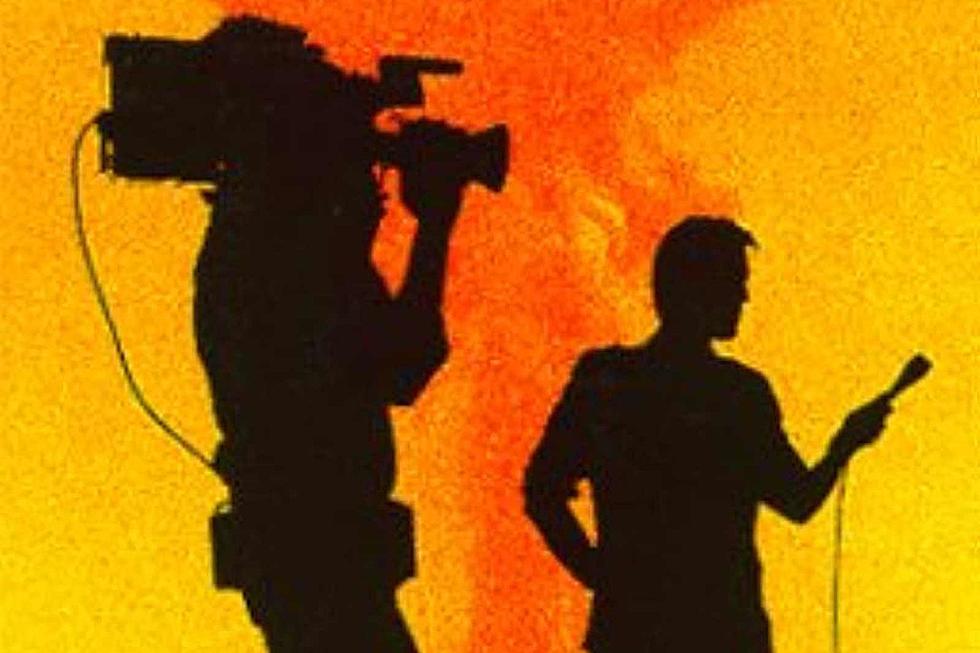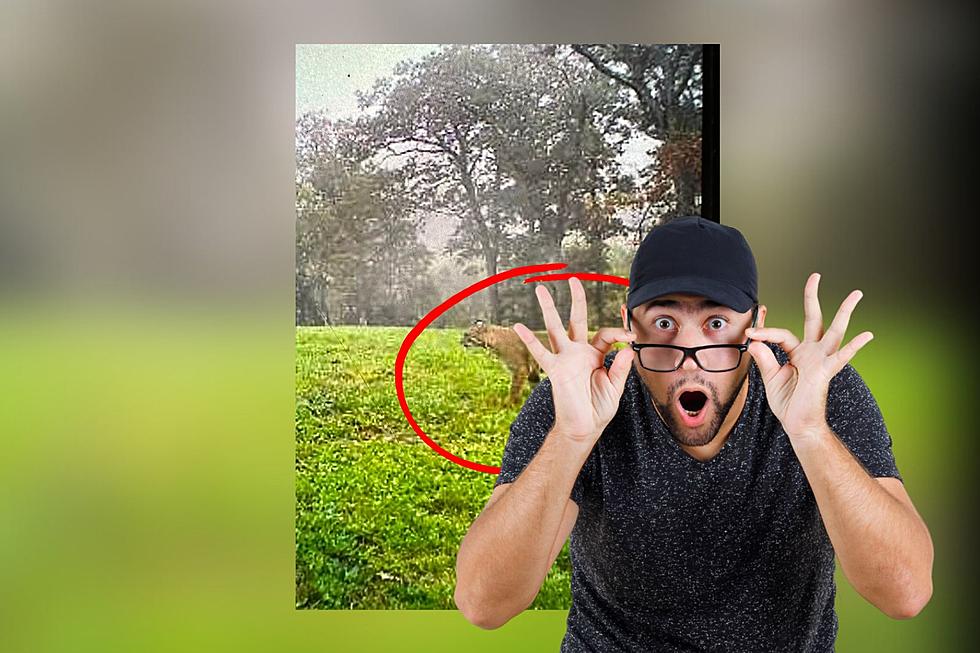
40 Years Ago: ‘Special Bulletin’ Causes ‘War of the Worlds’ Panic
NBC went to great lengths to reassure viewers that Special Bulletin was fiction. It’s to this infamous TV movie’s credit that plenty of viewers freaked out anyway.
The network gave writer Marshall Herskovitz and writer-director Edward Zwick two hours of the network’s airwaves for Special Bulletin, a fictional news broadcast chronicling a terrorist plot playing out in Charleston, S.C., on March 20, 1983. Presented as an interruption of nightly programming for the fictional but convincingly presented RBS television network, the broadcast begins without opening credits, instead presenting recognizable ads for the network’s game show and soap opera offerings, before a burst of static gives way to a report from RBS news, the announcer introducing a special report where the network’s co-anchors relate the just-occurring terrorist attack that’s seen a handful of people hijack a tugboat and wound several pursuing Coast Guard officers.
An on-the-spot RBS reporter and his unseen cameraman document the firefight before being taken hostage alongside several Coast Guardsmen, and the anchors are left in the dark until the terrorists demand a live feed on the network. When the feed is established, the true nature of the situation becomes starkly apparent: The terrorists are disillusioned nuclear scientists and former Pentagon types, they’ve assembled a nuclear bomb from stolen plutonium and they will detonate their device unless every detonator module from the many nuclear missiles in the heavily militarized Charleston area is delivered to them for disposal.
The early 1980s were fairly radioactive with films and television programs centered on the looming threats of nuclear war and/or accident. Famously, 1983 alone saw the broadcast of The Day After, WarGames and Testament, which all took different approaches to the ticking nuclear time bomb America heard in its nightmares. But it was Special Bulletin’s icy commitment to its faux broadcast’s verisimilitude that had NBC on high alert for potential fallout, of the PR variety, at least.
Strangely enough, even NBC’s live comedy show Saturday Night Live was subjected to a preemptive strike, with that show’s fake newscast follow-up to its previous “Buckwheat Shot” comic premise initially being shut down by the network’s standards and practices department, the censors explicitly citing the upcoming Special Bulletin’s potential to stir up controversy.
The extent to which nervous NBC viewers did take Special Bulletin’s all-too-believable hostage situation for the real thing is debatable. There are reports of localized anxiety in and around the program’s Charleston setting, but nothing approximating the infamous (and perhaps inflated) panic surrounding Orson Welles’ 1938 The War of the Worlds radio broadcast. Still, NBC wasn’t taking chances, as they, over the objections of Herskovitz and Zwick, not only inserted a title card before the broadcast and returned from all commercial breaks stating, “The following program is a realistic depiction of fictional events. None of what you are about to see is actually happening,” but also intermittently flashed a “Dramatization” caption onscreen during some of the special’s most incendiary incidents.
And then there’s the fact that Special Bulletin’s cast was hardly unknown, even at that time. As the peerlessly professional national anchors, Ed Flanders (later of St. Elsewhere) and Kathryn Walker (recently in John Belushi and Dan Aykroyd’s post-SNL flop Neighbors) boasted more than 50 movie and TV credits between them, while the terrorists are led by character actors David Clennon (memorably in the previous year’s The Thing), Rosalind Cash and David Rasche, with other recognizable faces like Roxanne Hart, Lane Smith, Peter Hobbs, Kenneth Tigar and John Wesley all noticeable “that guy”s from TV shows at the time. (You can also catch a glimpse of a young Michael Madsen at the 57-minute mark.)
In addition, the time frame of the government’s harried and ineffectual response and the subsequent evacuation of much of Charleston is compressed unrealistically in service of the plot. The fact that the then-meager network TV offerings did not include one named RBS was a tip-off as well, although Zwick and Herskovitz did tease Charleston-area viewers by naming the local affiliate WPIV, just one letter separate from the actual NBC affiliate WCIV and with all the establishing shots being shot in and around Charleston proper.
Watch 'Special Bulletin'
For all the clues and sleight of hand, however, Special Bulletin succeeded in channeling the era’s pervasive Cold War anxiety, the specter of such similarly interrupted nights of TV viewing thanks to everything from the 1981 assassination attempt of President Ronald Regan to the legitimately panic-inducing 1979 Three Mile Island nuclear accident leaving Americans primed for the unthinkable to disrupt a night’s viewing. Zwick and Herskovitz plumb that national anxiety expertly, with the shot-on-video immediacy of the escalating events and the admirably unostentatious performances top to bottom making Special Bulletin’s twists all too believable. Similarly, the terrorists’ motives and demeanor are presented as the drastic but understandable acts of a group of disillusioned, plugged-in nuclear and government insiders who have, as Clennon’s leader states, noted “a serious change in the strategic thinking of our leaders” in imagining that worldwide nuclear conflict is winnable, rather than humanity’s irrevocable death sentence.
The film also benefits from the then-dawning recognition of the role that media plays in amplifying or even inspiring acts of terror, with Rasche’s brilliant but unstable nuclear scientist taking time out from demonstrating the very real threat of his homemade nuclear device to taunt Flanders’ staid anchor for everything from backstage gossip about the addition of his female co-anchor to the way that RBS had a chyron (complete with theme music and the title “Flashpoint: America Comes Under Siege”) whipped up just hours into the standoff. Meanwhile, RBS’ around-the-clock coverage sees the news division conducting person-on-the-street interviews and background pieces on historic Charleston, all inevitably interrupted by the latest development on the besieged boat, with Flanders and Walker’s newscasters delivering pitch-perfect, sometimes contentious commentary as the clock continues to tick toward the terrorists’ deadline.
When the denouement comes, it’s handled with sickening efficiency, as tension turns to momentary triumph and then unspeakable horror. Here, too, there are sacrifices made for drama’s sake — while the low-resolution shots of the nuclear bomb squad attempting to disarm Rasche’s nest of anti-tampering measures is suitably grainy and tense, there’s no way NBS would broadcast such top-secret technical information. Still, the aftermath of a momentarily successful raid on the tugboat as part of a desperate scheme by the government is one of the most harrowing sequences in TV history, the shell-shocked Flanders and Walker’s practiced professional veneer crumbling in a manner familiar to all who saw network news anchors attempt to process live the events of Sept. 11, 2001.
There are no histrionics, even as Flanders and Walker’s pros become tearful and sweaty at the reality of what’s just happened. ("Someone figure out what we’re supposed to do!" Flanders’ anchor barks desperately after the feed goes suddenly and irrevocably to static.) Roxanne Hart’s stunned and bloodied NBS correspondent, who was caught far too close to the fallout zone, continues broadcasting from the flaming deck of her aircraft carrier location, even as she pauses repeatedly to ask if the radiation is killing her, while another reporter captures glimpses of frenzied rescue crews futilely ferrying burned and bloody residents into what’s left of a hospital.
A “three months later” follow-up broadcast closes out this Special Bulletin as Walker’s now solo anchor reveals the horrific aftermath, interspersed with a news ticker sound effect playing over unrelated news from around the world.
In perhaps the most chilling revelation of the film’s nuclear climax, Special Bulletin suggests that not even a cataclysm can prevent the Cold War world from marching on toward mutual destruction.




